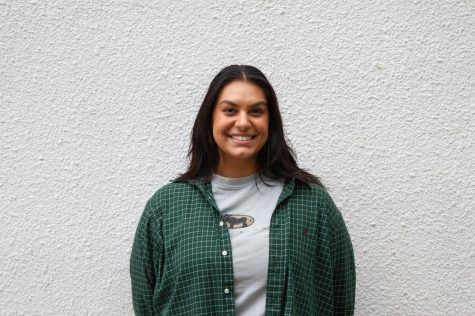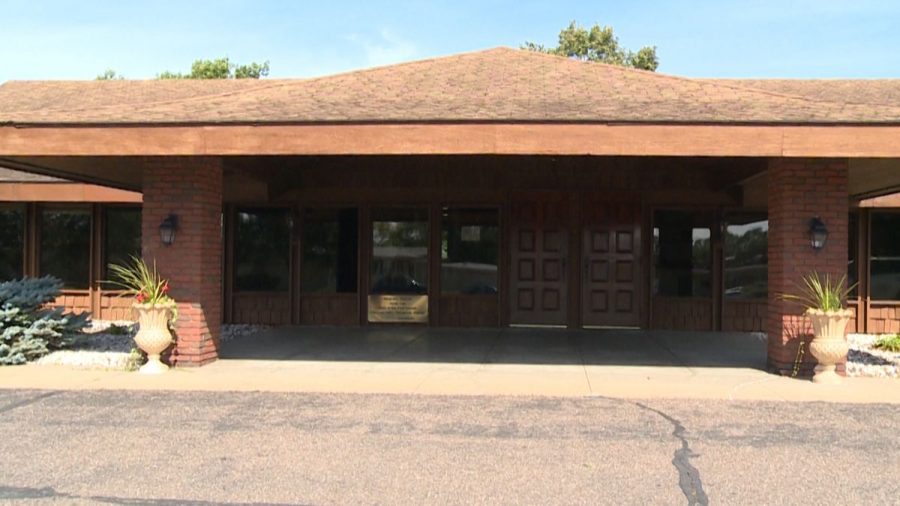Two Blugolds work with the Chippewa Valley Free Clinic to help local Spanish-speaking population
Working toward more equitable healthcare is important in addressing health disparities
Photo by SUBMITTED
Fitzgerald and Torres Berumen work with the Chippewa Valley Free Clinic to help the growing Spanish-speaking community in Eau Claire.
Two UW-Eau Claire students are working with a local clinic to help make healthcare more accessible.
Erin Fitzgerald and Breida Torres Berumen have been spending their Fall 2020 and Spring 2021 semesters translating the patient handbook for the Chippewa Valley Free Clinic to help the growing Spanish-speaking community in Eau Claire.
Fitzgerald, a second-year biology student with a minor in Spanish for health professions, said one of the reasons she was motivated to work on this project was to be able to apply her Spanish — in a real-world way –– where people were actually benefiting.
“I think it’s really important that medical resources are available in everybody’s native language because that’s something we take for granted a lot of the time,” Fitzergald said.
For Torres Berumen, a third-year biology student with a minor in Spanish for health professions, that proved true.
“I didn’t know any English as a freshman in high school, I had to deal with this myself,” Torres Berumen said. “I had to navigate through life not understanding anything that was going on around me.”
She said while she was able to learn English, that is often not the case for a lot of people and wanted to help them get the access to healthcare that they deserve. Being an immigrant herself, she said she understands the lack of accessibility in terms of language barriers.
Elena Casey, an assistant professor of Spanish and the faculty mentor for this project, said the resources available in the healthcare field should be reflective of the populations they are serving.
“Even if it was just one person, healthcare — if we want it to be equitable — it needs to be accessible to whoever is in our community,” Casey said.
All three of them said this project is a step in the right direction toward bringing awareness to the growing need for comprehensive access to healthcare.
Casey and Fitzgerald said that although Eau Claire, and Wisconsin in general, is predominantly white, making sure people still acknowledge the needs of minority groups is still important.
“We need to recognize that just because someone might not see a community, doesn’t mean it’s not there,” Casey said.
Torres Berumen said that having a basic document, such as the patient handbook, available in Spanish is critical, as it provides the information patients need to learn about the clinic.
“It could mean the difference between someone being able to get the care that they need or them not getting it because they just don’t know where to go or when to go,” Torres Berumen said.
Casey said in addition to having that basic information provided in the handbook, it is necessary for patients to be able to express what they are feeling and experiencing in a language that is most comfortable to them. This way, Casey said healthcare is accessible and a community is healthy.
Throughout the COVID-19 pandemic, Casey said she has felt called to find a way to help those in the medical field. This project has allowed Torres Berumen and Fitzgerald — future medical professionals –– to make connections, while simultaneously allowing the staff and volunteers at the Clinic to focus on other facets of their work.
Hispanic and Latinx individuals have been disproportionately impacted by COVID-19, according to the Centers for Disease Control and Prevention website. Having the resources available to this community in Spanish is essential in order to address this disparity.
In Wisconsin, Hispanic or Latinx people make up seven percent of the population, but account for 12% of COVID-19 cases, according to The COVID Tracking Project.
Torres Berumen and Fitzgerald said their project begins to shine a light on this issue and they hope the work they are doing encourages other students to pay attention to these health disparities and commit themselves to similar projects.
“It gives me a lot of hope for who our future medical professionals are, knowing that women like Breida and Erin are going to be among them,” Casey said.
Gómez can be reached at [email protected].

Rosa Gómez is a second-year political science and journalism student. This is her first semester on The Spectator staff. She enjoys rainy days, reading and all things social justice!











